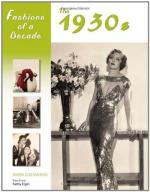|
This section contains 251 words (approx. 1 page at 300 words per page) |

|
Implicitly, the success of New Deal educational programs stood as a rebuke to traditional education, proof that vast groups heretofore assumed to be uneducable could learn. Politically, the programs were tremendously popular, a thorn in the side of conservatives and a challenge to the elitism of traditional educators. The New Dealers intended that children, heretofore barred by poverty from getting good educations, would compete educationally with their wealthy neighbors. New Dealers went out of their way to make this point clear. A 1938 educational-commission advisory to Roosevelt condemned the use of schools as "a force to create class . . . race, and sectional distinctions," and Harry Hopkins, director of the WPA, put it thus: "this business of getting an education and going to law school and medical school and dental school and going to college is not to be confined to the people who have an economic status...
|
This section contains 251 words (approx. 1 page at 300 words per page) |

|




